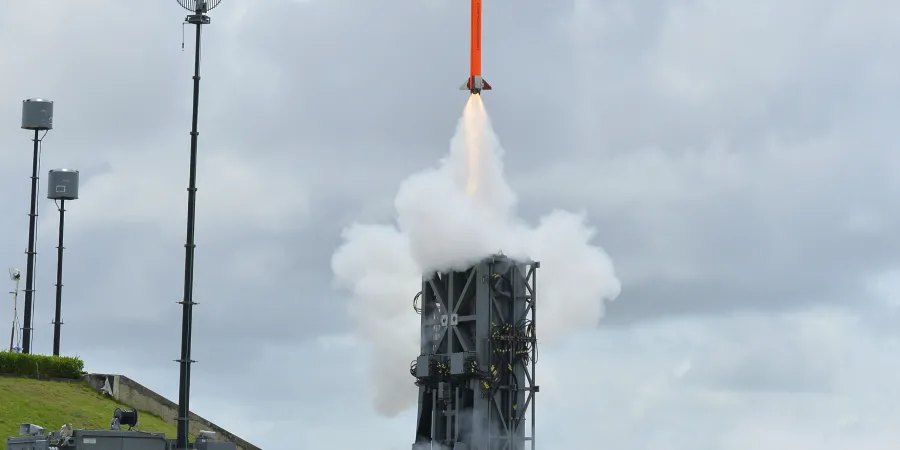IAI Signs Follow-Up Agreements with India on Complementary MRSAM Systems
The $93 million worth of contracts were signed with the Indian Navy and Cochin Shipyard Limited (CSL). Last week, the Indian Navy and IAI held a successful interception test aboard INS Chennai
IsraelDefense
| 31/01/2019
Israel Aerospace Industries (IAI) announced Wednesday that it has entered agreements worth $93 million for the provision of Naval MRSAM (Medium Range Surface-to-Air Missile) systems. The contracts were signed with the Indian Navy and Cochin Shipyard Limited (CSL). Under the contracts, IAI will provide complementary systems for the air defense system (ADS). They involve follow up orders for a range of maintenance and other services for various sub-systems of IAI’s advanced MSRAM ADS.
Last Thursday, the Indian Navy, in collaboration with IAI, held a successful interception test aboard INS Chennai, which assessed for the first time potential collaboration between ships. The interception scenario demonstrated how the operational force of the defense system can be doubled regionally, rather than topically.
“The follow-up orders provide additional evidence of the satisfaction and trust of our Indian partners in respect to the MRSAM family,” said Boaz Levi, Executive Vice President and General Manager of IAI’s Systems, Missiles & Space Group. “(Last) Thursday’s test demonstrated the advanced technological capabilities of the air defense system as well as our collaboration between IAI, its partners in India’s navy, the local Indian industry and our colleagues at IAI’s ELTA and Rafael. This is a badge of honor for the entire Israeli industry.”
The MRSAM family is an operational air-defense system used by Israel's Navy as well as by India’s naval, air and ground forces. It has been uniquely developed by IAI in collaboration with Israel's Ministry of defense, India’s Defense Research and Development Organization (DRDO), Rafael, IAI’s Elta and additional industries in India and Israel. MRSAM comprises several key systems, including a digital radar, command and control, launchers, and interceptors with advanced homing seekers.
The $93 million worth of contracts were signed with the Indian Navy and Cochin Shipyard Limited (CSL). Last week, the Indian Navy and IAI held a successful interception test aboard INS Chennai
Israel Aerospace Industries (IAI) announced Wednesday that it has entered agreements worth $93 million for the provision of Naval MRSAM (Medium Range Surface-to-Air Missile) systems. The contracts were signed with the Indian Navy and Cochin Shipyard Limited (CSL). Under the contracts, IAI will provide complementary systems for the air defense system (ADS). They involve follow up orders for a range of maintenance and other services for various sub-systems of IAI’s advanced MSRAM ADS.
Last Thursday, the Indian Navy, in collaboration with IAI, held a successful interception test aboard INS Chennai, which assessed for the first time potential collaboration between ships. The interception scenario demonstrated how the operational force of the defense system can be doubled regionally, rather than topically.
“The follow-up orders provide additional evidence of the satisfaction and trust of our Indian partners in respect to the MRSAM family,” said Boaz Levi, Executive Vice President and General Manager of IAI’s Systems, Missiles & Space Group. “(Last) Thursday’s test demonstrated the advanced technological capabilities of the air defense system as well as our collaboration between IAI, its partners in India’s navy, the local Indian industry and our colleagues at IAI’s ELTA and Rafael. This is a badge of honor for the entire Israeli industry.”
The MRSAM family is an operational air-defense system used by Israel's Navy as well as by India’s naval, air and ground forces. It has been uniquely developed by IAI in collaboration with Israel's Ministry of defense, India’s Defense Research and Development Organization (DRDO), Rafael, IAI’s Elta and additional industries in India and Israel. MRSAM comprises several key systems, including a digital radar, command and control, launchers, and interceptors with advanced homing seekers.



